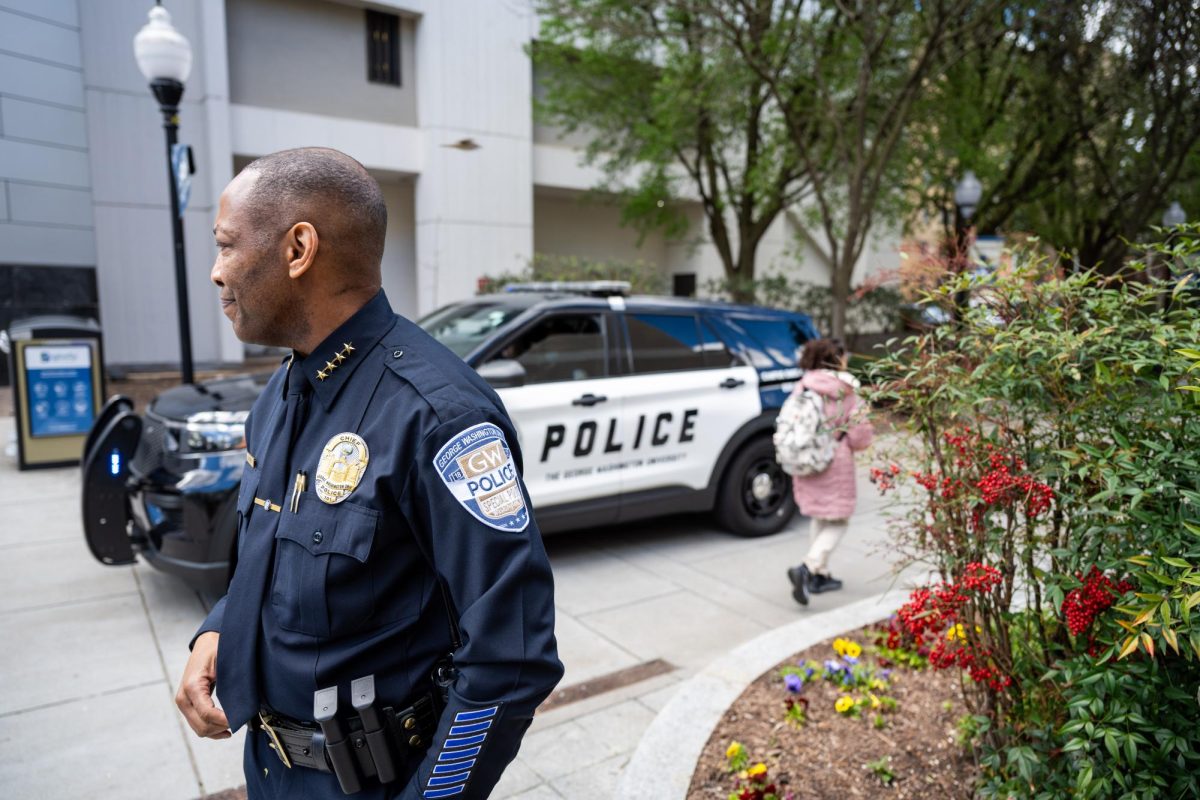
Updated: Wednesday, Sept. 11, 2013 at 2:18 p.m.
In a dramatic meeting of about 60 business school faculty, the professor with temporary control over the college railed against GW’s top brass for the “reprehensible” firing of Doug Guthrie over two weeks ago.
Philip Wirtz, the vice dean of programs and education, urged faculty to cease infighting and come together against “the true enemy” – administrators in Rice Hall.
Politics boiled over in the hastily convened meeting, where Wirtz argued that the $12 million budget dispute hanging over the school was “totally outrageous” and did not justify Guthrie’s dismissal.
“I’m getting real tired of the business school being hung out to dry for essentially attempting to grow,” said Wirtz, who was appointed by Guthrie last year and was at his boss’s side the morning of his firing.
Wirtz, who ran the school’s day-to-day operations for three weeks after Guthrie was fired, mostly blamed University President Steven Knapp and Executive Vice President Lou Katz – hinting that Rice Hall was divided on the issue.
Provost Steven Lerman named management professor Chris Kayes the school’s interim dean Wednesday.
Sok-Hyon Kang, a business professor who previously served as vice dean of faculty and research, questioned Katz’s office for not detecting “a so-called $13 million overrun.”
“We have a serious problem at the university level in terms of financial management and the financial recording system at the very least,” he said.
Theodore Barnhill, a professor of finance, claimed the University was “addicted to the cash flow” from the business school, which led administrators to pull the plug early on Guthrie’s tenure.
To end the business school’s reputation at GW as a money maker, Barnhill said: “Faculty need to come together and demand change.”
Knapp sent out an email to the University Wednesday after Lerman’s announcement, assuring GW of the administration’s commitment to the school. He said the school was “central to the implementation of the Strategic Plan” and that administrators will support the school so it continues to grow.
“In the past few days, questions have been raised regarding the university’s commitment to the School of Business. I want to give you my personal assurance that there has been no reduction whatsoever in the University’s commitment,” Knapp said.
Looking at the school’s overall financial picture, Wirtz said the figures from Lerman and Knapp did not tell the full story. While he admitted Guthrie did overspend by $12 million last year, the school also earned $12 million more than expected in revenue – providing the University millions in revenue.
“If you read the numbers appropriately, we could be way ahead of the game,” he said.
That story is similar to the one Guthrie told reporters last week, which the University shot down and said Guthrie failed to submit a new budget.
Lerman will likely name an interim dean by the end of the week, Wirtz said, adding that he had no interest in the role.




